MercoPress. South Atlantic News Agency
Tag: European Union
-
Wednesday, March 13th 2019 - 09:15 UTC
The EU, UK and India ban the Boeing 737 Max from their airspaces
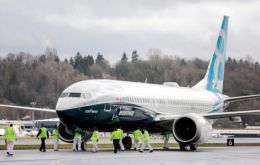
The European Union and India have banned the Boeing 737 Max from flying over their airspace to ensure passenger safety. They join a long list of countries in suspending the plane, including the UK. It comes after an Ethiopian Airlines plane crashed on Sunday, killing 157 people on board. It was the second fatal accident involving the 737 Max 8 model in less than five months.
-
Wednesday, March 13th 2019 - 07:26 UTC
UK business groups Brexit exasperation: “It's time for Parliament to stop this circus”

Business groups are “exasperated” after the Prime Minister's EU withdrawal plan was again rejected by Parliament. They called on MPs to shut down the possibility of a no-deal Brexit and come up with a clear EU exit plan. The City UK, the finance industry body, said leaving without a deal “would be an own goal of historic proportions”.
-
Wednesday, March 13th 2019 - 07:10 UTC
Brexit deadline: Commons votes on leaving the EU without a deal after PM May's deal was again rejected
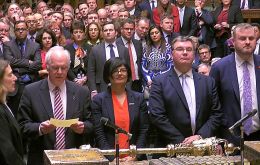
Theresa May's EU withdrawal deal has been rejected by MPs by an overwhelming majority for a second time, with just 17 days to go to Brexit. On Tuesday MPs voted down the prime minister's deal by 149 - a smaller margin than when they rejected it in January.
-
Tuesday, March 12th 2019 - 20:19 UTC
UK Parliament: Brexit deal is rejected again
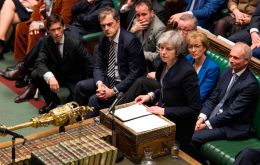
The Brexit deal negotiated by the Government of Theresa May and the European Union was rejected on Tuesday for the second time in the British Parliament despite the adjustments that the Prime Minister managed to reach in the European bloc.
-
Saturday, March 9th 2019 - 08:11 UTC
EU proposes UK a Brexit unilateral option but excluding Northern Ireland
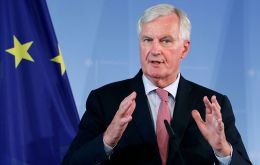
The EU's chief Brexit negotiator Michel Barnier on Friday proposed that Britain could leave the bloc's customs union after the divorce though the offer would not include Northern Ireland which will most probably anger London.
-
Friday, March 8th 2019 - 10:25 UTC
PM May pressures Brussels to help her make Parliament approve a Brexit deal

Prime Minister Theresa May was to pile the pressure on Brussels this Friday, saying their willingness to budge could determine whether British MPs finally back a Brexit deal next week. May was to say the European Union had some choices to make if it wanted to secure a withdrawal agreement and see Britain leave the bloc in an orderly fashion on March 29.
-
Friday, March 8th 2019 - 09:15 UTC
Euro zone interest rates frozen for twelve months given overall slowdown
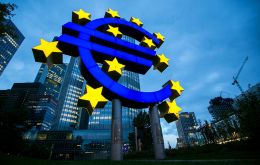
Interest rates in the Euro zone will not rise until next year at the earliest, the European Central Bank has signaled amid evidence of a slowdown in the 19 countries using the single currency. The ECB also unveiled a round of fresh stimulus, offering banks cheap loans to try to help revive the economy.
-
Thursday, March 7th 2019 - 19:04 UTC
WTTC: Travel & Tourism to drive post-Brexit recovery

Travel & Tourism can be a major growth sector for the UK after Brexit, according to new research from the World Travel & Tourism Council (WTTC).
-
Thursday, March 7th 2019 - 08:24 UTC
Another challenge for PM May: Lords vote to negotiate a customs union with EU
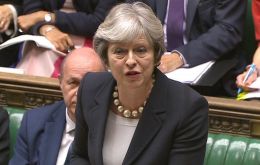
Britain's House of Lords passed an amendment on Wednesday calling for the government to negotiate a customs union with the European Union, giving Prime Minister Theresa May a potential new headache in her Brexit plans.
-
Thursday, March 7th 2019 - 05:26 UTC
EU has urged to table fresh Brexit proposals within the next 48 hours

The UK has been urged to table fresh proposals within the next 48 hours to break the Brexit impasse. EU officials said they would work non-stop over the weekend if “acceptable” ideas were received by Friday to break the deadlock over the Irish backstop.
